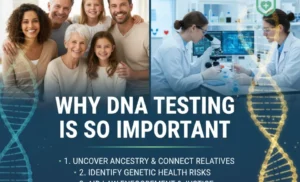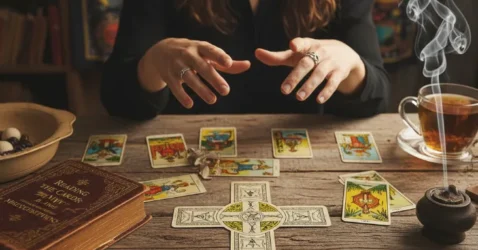Beyond the Surface: What Plus-Size Women Wish Their Partners Knew About Dating Them
Dating is a journey of connection and chemistry. It’s about finding that special someone who makes your world brighter, regardless of what they look like. However, for many plus-size women, the dating landscape can be a minefield of negative experiences, shaped by the pervasive assumptions, misconceptions, and insecurities of others. In a world obsessed with unrealistic beauty standards, it’s easy to get lost in the noise. But when you’re dating a plus-size woman, the key is to look past the surface and truly cherish her for the incredible person she is. It’s not about her body, but about the beautiful soul inside.
Here are ten things plus-size women wish their partners understood about dating them.
1. Don’t Assume She’s Insecure
One of the biggest misconceptions is that a plus-size woman must be insecure about her body. Just because she doesn’t fit into the narrow, rigid confines of society’s beauty standards, it doesn’t mean she’s struggling with her body image. While some women do face self-esteem issues, you shouldn’t automatically assume this. Many plus-size women are fiercely confident and love their bodies exactly as they are. They don’t need constant reassurance unless they’ve explicitly told you that’s what they want. Focus on her as an individual, not on a presumed struggle with her self-worth.
2. Her Body Isn’t a Project to Be Fixed
Many plus-size people are content with their bodies and aren’t on a weight loss journey. They want their partners to love and accept them as they are, not view them as a “before” picture waiting for an “after.” These women are not a project to be fixed or changed. They are perfectly desirable and complete in this moment. Viewing your partner through a lens of potential change can be incredibly damaging to their self-worth and to the relationship itself. True love means accepting someone for who they are, not for who you want them to be.
3. She Doesn’t Want to Be a Secret
A true sign of respect is proudly showing off the person you’re with. Yet, some people are embarrassed to be seen publicly with a plus-size partner because they fear judgment from others. This leads to treating the relationship like a secret, hiding it from friends and family. Plus-size women deserve to be shown off. They want to meet your loved ones and be an undeniable part of your life. Don’t be afraid to be seen with her. The opinions of others are irrelevant; what matters is your connection.
4. She’s Not a Fetish
The online dating world has unfortunately turned dating a plus-size woman into a fetish for some. It can be a genuine struggle for plus-size women to distinguish between a partner who is genuinely attracted to them as a person and someone who is specifically seeking them out because they view their size as a kink. True attraction is about the whole person. The goal is to make her feel cherished and desired, not like she’s a conquest or a part of a specific fantasy.
5. Attraction Goes Beyond Size
A backhanded compliment is the enemy of genuine flattery. Don’t tell your partner she’s “beautiful for a plus-size girl.” This type of comment implies that her size is a limiting factor to her beauty. She’s just beautiful. Period. Appreciate her for her captivating personality, her sparkling eyes, her radiant skin, and her infectious laugh. Compliment her for who she is, not in spite of her body. Your words should be a source of genuine, positive affirmation.
6. Communication is Key in the Bedroom
In the bedroom, communication is crucial. When it comes to intimacy, certain positions may be more comfortable and enjoyable for a plus-size woman. Instead of making assumptions, talk to your partner. Having open and honest conversations in a safe and loving space allows you both to explore and have fun while ensuring she feels good and confident.
7. Her Health Isn’t Your Business
Plus-size does not automatically equal unhealthy. It’s a damaging and incorrect stereotype. Don’t make assumptions about your partner’s diet, exercise habits, or overall health. A larger person can be incredibly healthy, just as a thin person can be unhealthy. Unless she specifically brings up her health and chooses to share it with you, it’s not a topic for discussion. Her body is her own, and her health choices are her private matter.
8. Support Her Through Shopping
Shopping can be a frustrating and emotional experience for plus-size women. Finding trendy clothes that fit well can be a challenge. If you’re with her on a shopping trip, be patient and supportive. Understand that it might take more time to find a brand or an outfit that works for her. Your support can make a frustrating experience much more pleasant and show that you’re in her corner.
9. Be Sensitive, Always
This is the golden rule. Be sensitive and compassionate in everything you do. When you compliment her, focus on her personality and features rather than her size. Don’t compare her to other women. Empathy and compassion are the cornerstones of any healthy relationship. Treat her with the respect and love she deserves.
10. She Deserves to Be Treated Like a Queen
Above all, remember that she is worthy of pleasure, romance, adventure, and respect. Her size has no bearing on her worth. She deserves to be treated like royalty, celebrated and cherished for who she is. If you make sure to do all of the above—be sensitive, supportive, and open-minded—you’ll be worthy of her love, and she will undoubtedly appreciate your effort. True love is a beautiful thing, and it comes in every shape and size.




















